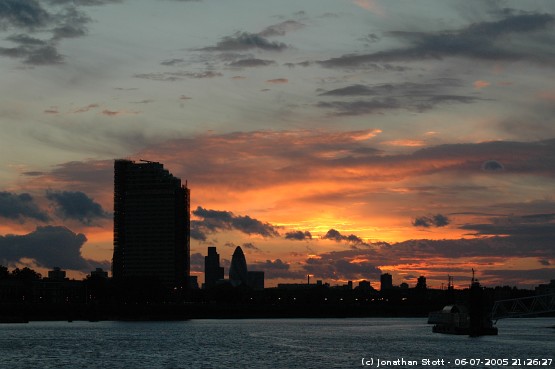
Under ~sigh~ "Strange News," CBS reports that: Rangers at Hawaii Volcanoes National Park are launching a program to stop people from leaving religious offerings at the summit of Mount Kilauea - including food [that] they say attracts rats and cockroaches.
. The article sparked an interesting debate over in the comments section at Eschaton. Why must the rangers "stop" people, rather than seeking some other compromise? They can't designate some altars to Pele and then clean them at the end of the day? Really?
Jason, at the Wild Hunt has had a number of recent posts concerning the need for compromise between tourists, historians, and Pagans over the use of sacred sites. This is an issue that, as recent demands by Greek Pagans for access to "historical" religious sites in Greece demonstrate, isn't going to go away. We're going to need to find some way to accomodate everyone's needs, and "everyone" includes the Pagans. I'm willing to agree that it includes the historians, preservationists, and archeologists, but I'm going to demand that it also include the Pagans who claim the right to worship in their own religions' sites.
Let's start by admitting that, in a purely legal sense, the "right" of some Pagans to certain sites is less than legally-well-drawn. Somewhere between the ancient priestesses of Hygia, the Vestal Virgins, and me, the title to the land got lost (stolen, burned, attributed). And let's also admit that this is part of the problem. I belong to a religion where my need to worship at New Forest, Stonehenge, Mount Kilauea, and Great Capacon Park isn't defined by legalities as much as it is defined by religion. But the "legal" title to, for example, Mount Kilauea can't be used to deny me the ability to exercise my religion. The dominant culture can't destroy almost every vestigage of my religion, build their own churches over my sacred wells and groves, steal the land of my ancestors and co-religionsists, and then use "legal title" to prevent me from exercising my religion.
Someday in the future, xianity won't be the dominant relligion. Notre Dame will be a primarily historical site, one with serious archeological value. Should it be possible for the dominant culture at that time to prevent xians from saying Mass at Notre Dame? I don't think so.
In my "perfect" world, there would be acknowledgement -- legal, practical, architectural, social, artistic, and academic -- of the fact that, literally, every inch of the Earth is sacred, is a site for worship, is part of my "church." In my religion, there aren't, actually, sacred spaces in the modern world; it's that the whole world is sacred. There aren't mundane spaces and sacred spaces. The entire world is divine, is alive, is a manifestation of divinity. Buildings would have small altars outside, parks would specify the offerings that the deities of that place preferred, attendants would collect coins from the fountains and use them to feed the poor, park rangers would be respectfull of the need to leave offerings, xian megachurches would be required to plant trees in their parking lots.
Actually, Notre Dame, for example, already allows for lots of tourists who aren't there to worship; they're there to see a historical site. England has worked out a system, less than perfect, for allowing Pagans some access to, for example, Stonehenge, while still preserving the site and allowing archeological access.
Paganism is one of the fastest-growing religions. Pagans trace their roots, even if those roots are only theological and emotional, back to sacred sites all over the world. The notion that a site once considered sacred can become simply a park or a historical site is outdated. We're going to have to come up with a new way of viewing the world. It's going to be interesting. It's not going to depend upon a purely legalistic chain of title to land, nor is it going to depend upon mere assertions by various religions that site X is their own sacred site. It's going to be more interesting that that; it's going to acknowledge that the planet is crowded and that your sacred site may have been built illegally upon my sacred site and that it's now too late to undo what's been done. I imagine it's going to inovolve learning to share.
If anyone is aware of any legal writing on this topic, I'd be grateful for a citation. It occurs to me that this is an area that could benefit from some law review articles.























